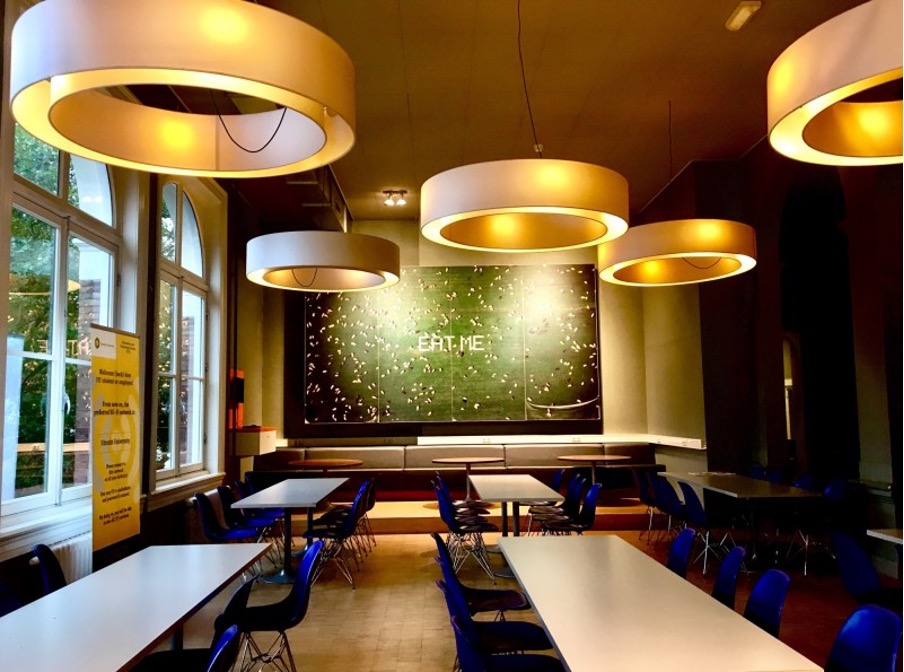Seminar Blogs
“The Impact Remains” – Olga Efremova
The Transmission in Motion 2021-22 seminar series opened with a presentation from Marta Zarzycka on translating academic research on affect to user experience research. During her academic career at Utrecht University Zarzycka researched the role of digital photography in shaping collective Western consciousness through the representation of trauma. Drawing on her current work at Google, Zarzycka spoke of the challenges she faced when adapting her academic works on emotions to a business context. Listening to the story of her transition from a feminist scholar to a commercial researcher reminded me of my own ‘reverse’ yet similar challenge. When translating my business experience to an academic context, I went through a similar process of disorientation and re-orienting. Rewiring my performance-oriented, value-driven self also meant translating my writing and thinking into new conventions. The questions posed by Zarzycka – What remains? What gets lost in translation? (Utrecht University 2021) – still stand most urgent as I continue this journey.

Efremova, Olga. October 20, 2021. “Eat Me: The Canteen of Utrecht University School of Economics at Bijlhouwerstraat 6, Utrecht.”. Digital image. Private collection.
Looking back, I find that personal motivation lies at the core of a successful change from one professional context to another. Zarzycka mentioned that without her personal circumstances driving this transition she would probably never attempt to leave the world of academia. My own interest in affect studies is driven by my role as a parent of an autistic child that forced me to leave the financial comfort and the familiarity of the business world and embark onto a new career. Zarzycka spoke of undergoing an adjustment process akin to grieving over a loss of her past identity as a scholar and attempting to retain the important aspects of her past self. Grieving is a social emotion that often induces empathy in those who observe it. When writing on affect, Theresa Brennan (2004) notes that “the transmission of affect, whether it is grief, anxiety, or anger, is social or psychological in origin” (1). Grief to her also highly personal “energy locked up in an alphabet in which it cannot speak […] released back into the flow of life by words.” Brennan asks, “How much of grief should be retained, how much should be released?” (2004). Zarzycka’s answer to this question is perhaps “locked” in holding to Dr. title in her business signature despite being advised against it. Mine is in remaining “impact-obsessed” (Zarzycka 2021, seminar notes).
In Educational Research Gert Biesta (2020) speaks of the need for research to remain pragmatic (7), a notion that is well understood in the context of commercial, “business-first mentality” (Zarzycka 2021, seminar notes). Translating the need for pragmatism into academic context is perhaps works best by considering the emancipatory purpose of research: its ability to “allow social actors to become liberated” (Biesta 2020, 17). This raises the question of whether the translation of research should not be that of the methods or concepts, but rather of impacts. The impact of well-executed research may well be in liberating the locked-up energy, letting it be absorbed back into the world. The context-specific research method might get lost in translation, but the impact remains.
References
- Biesta, Gert. 2020. Educational Research: An Unorthodox Introduction. London: Bloomsbury Academic.
- Brennan, Teresa. 2004. The Transmission of Affect. Ithaca: Cornell University Press. Accessed November 8, 2021. ProQuest Ebook Central
- Utrecht University. 2021. “Transmission in Motion. Events. “Shifting Grounds: Translating Academic Research on Affect to User Experience Research at Google – Marta Zarzycka”. Transmission in Motion. Accessed November 8, 2021. https://transmissioninmotion.sites.uu.nl/shifting-grounds-translating-academic-research-on-affect-to-user-experience-research-at-google-marta-zarzycka

